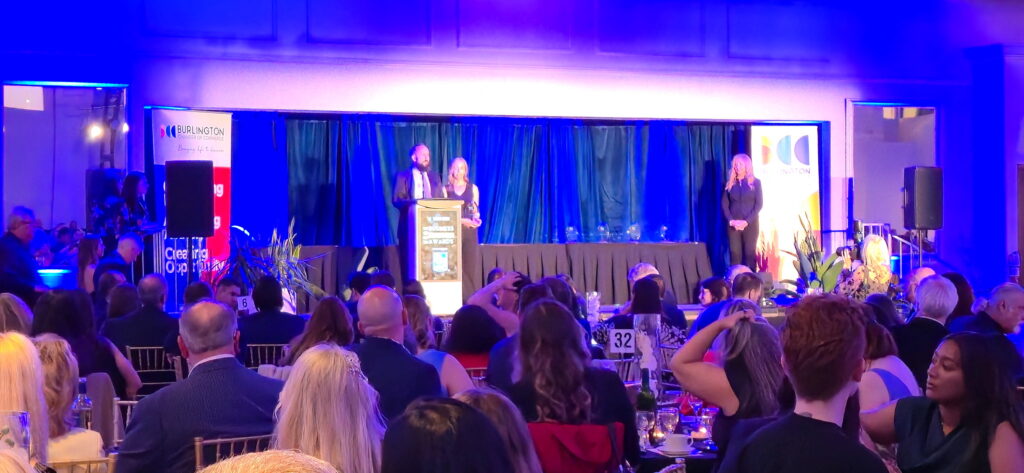Personal Tax Updates
Every year there are new rules and regulations around what credits and deductions you can claim on your income tax filing, and what you need to do to claim it. Brent Sousa, Senior Manager of Assurance & Advisory at SB Partners looks at some of the top changes in 2024.
The Basics
Federal Tax brackets have shifted:
- $0 to $55,867 (15%)
- $55,867 to $111,733 (20.5%)
- $111,733 to $173,205 (26%)
- $173,205 to $246,752 (29%)
- Over $246,752 (33%)
Ontario Tax brackets have shifted:
- $0 to $51,446 (5.05%)
- $51,446 to $102,894 (9.15%)
- $102,894 to $150,000 (11.16%)
- $150,001 to $220,000 (12.16%)
- Over $220,000 (13.16%)
TFSA contribution limit for 2024 and 2025 is $7,000.
The RRSP contribution limit for 2024 is $31,560 and $32,490 for 2025, or 18% of your earned income in the previous year, whichever is smaller.
For those receiving the OAS, the minimum recovery threshold increased to $90,997 in 2024. The OAS claw back is 15% on the portion of income that exceeds the minimum threshold.
Immediate Expensing of Capital Assets
Starting in 2022, business owners were able write-off 100% of certain capital assets in the year acquired and made available for use, allowing significant tax deferrals. 2024 is the last year that Sole proprietors can claim a full write off.
New in 2024
The Home Buyers’ Plan (HBP) withdrawal limit has increased from $35,000 to $60,000 for withdrawals made after April 16, 2024. In addition, temporary repayment relief was introduced to defer the start of the 15-year repayment period by an additional three years for participants making a first withdrawal between January 1, 2022 and December 31, 2025. Accordingly, the 15-year repayment period will start in the fifth year following the year that the first withdrawal was made.
Effective January 1, 2024, income tax deductions are denied for expenses incurred to earn short-term rental income if the rental activity is undertaken in provinces and municipalities that have prohibited short-term rentals and the short-term rental operators are not compliant with applicable provincial or municipal licensing, permitting or registration requirements. This change applies to all expenses, including interest expenses, incurred to earn income from operating non-compliant short-term rentals. However, being fully compliant by December 31, 2024 will deem the individual to be compliant for the entire 2024 year.
Short-term rental would be defined as a residential property that is offered for rent for a period of less than 90 consecutive days.
Reporting rules for digital platform operators
CRA continues to perceive a significant risk of non-compliance surrounding the sharing economy. Commencing in 2024, digital platform operators (e.g. Airbnb, Etsy, Uber) must report seller information to CRA. This includes identification details, income earned by the Canadian sellers, and, for rentals, specifics of the rental property. CRA will be able to use the information provided for their compliance activities. If you are a reportable seller, your platform operator will provide you with an annual copy of the information that is collected and reported to the Minister under these rules by January 31, 2025, to help you file your 2024 taxes.
The AMT ensures that taxpayers pay a minimum amount of tax, even when using legitimate tax incentives, such as the capital gains exemption. Changes to the AMT calculation have been introduced as of January 1, 2024, targeting high-income individuals, with lower and mid-income individuals generally at reduced risk of AMT exposure. These changes include an increase to the minimum tax rate and the basic exemption threshold, as well as changes to the calculation of adjusted taxable income for AMT purposes, the special foreign tax credit, and the minimum tax carryover. The changes also limit the value of most non-refundable tax credits.
GST/HST exemption for psychotherapy and counselling therapy services
As of June 20, 2024, certain psychotherapists and counselling therapists are no longer required to collect the GST/HST on their services.
The Federal government proposed that donations made as late as February 28, 2025 would be eligible for claim with the 2024 personal income tax return. There has been no legislation to effect this proposal, however, CRA stated it will proceed with administering the proposed tax measure to extend the 2024 charitable donations deadline. Donated shares are excluded from this extension.
If you do not claim donations up to February 28, 2025, on your 2024 personal income tax return, you can still claim the amount on your 2025 return or carry forward the amount.
Deferred to 2026
On Friday, January 31st, 2025, the Canadian government announced that taxpayers will not need to include the proposed increase in the capital gains inclusion rate in their 2024 tax filings.
This increase, which was originally scheduled for June 25, 2024, has now been deferred to January 1, 2026. The planned change would have raised the inclusion rate for individuals and corporations to two-thirds on gains exceeding $250,000.
According to the government’s website, the capital gains exemptions being maintained and created would include:
- Maintaining the Principal Residence Exemption – this exemption does not change and means Canadians selling their primary residence do not pay capital gains taxes.
- A new $250,000 Annual Threshold for Canadians – this becomes effective January 1, 2026, and means that those selling a secondary property, such as a cottage, will be eligible for the $250,000 annual threshold.
- Increasing the Lifetime Capital Gains Exemption to $1.25 million – this is retroactively effective from June 25, 2024, and means that the current lifetime capital gains exemption increased from the current amount of $1,016,836 on the sale of small business shares and farming and fishing property to $1,250,000.
- A new Canadian Entrepreneurs’ Incentive – meant to encourage entrepreneurship this will reduce the inclusion rate to one-third on a lifetime maximum of $2 million in eligible capital gains. This incentive takes effect with the 2025 tax year. This means the maximum would increase by $400,000 each year, reaching $2 million in 2029.
New in 2023
First Time Home Saving Account (FHSA)
The FHSA came into effect on April 1st, 2023, and is available to those who are at least 18 years of age (and under 72). The FHSA allows an annual tax-deductible contribution limit of $8,000 (to a lifetime maximum limit of $40,000). Once you have opened the account, up to $8,000 of unused contribution room can be carried forward, and investment income earned in this account is not taxed.
- The lifetime of an FHSA starts when the account is opened and ends at the end of the year following the year in which the earliest of the following events occur:
- The 14th anniversary of the date when the account was opened,
- When you turn 70 years old, and
- When you make a qualifying withdrawal
- Contributions must be made by December 31st to claim a deduction for that year. However, contributions do not have to be deducted in the year made (they can be carried forward indefinitely).
- Funds can be transferred from an RRSP (tax-free) within the contribution limits, however there is no deduction for amounts transferred and it does not restore your RRSP contribution room.
- Funds withdrawn to purchase a qualifying home are not taxable, and remaining funds can be transferred into a RRSP or RRIF without reducing your RRSP room. Withdrawals for any other purpose are taxable.
- FHSA may be advantageous if you’re a qualified individual but have no plans to buy a home. If your RRSP room is already maximized, you can contribute to FHSA and get an additional deduction and eventually transfer the FHSA to an RRSP or RRIF without affecting your RRSP limit.
T4FHSA slips will be issued for the first time and will include information on items such as FHSA deductible contributions and withdrawals (both qualifying and taxable).
Effective January 1, 2023, all gains arising from the disposition of residential property (including rental property and assignment sales) owned for less than 365 days are deemed to be business income as opposed to a capital gain (and therefore, ineligible for the principal residence exemption). Some exemptions would apply when a home is disposed of due to certain life circumstances, such as the disposition being due to death, separation, birth, safety issue, illness/disability, employment change, insolvency or involuntary disposition. If the gain is deemed business profit, additional expenses may be allowed (i.e. mortgage interest).
Multigenerational Home Renovation Tax Credit (MHRTC)
The MHRTC is a new refundable tax credit introduced in 2023. This credit relates to certain renovation expenses (up to $50,000) incurred after December 31, 2022, to create a secondary self-contained unit within your home to house a related senior (65 years or older) or an adult who is eligible for the disability tax credit. The refundable tax credit is 15% of the qualifying expenditures and must be claimed in the year that the renovation is completed.
The UHT is an annual 1% tax intended to apply to the value of residential real estate owned by non-residents that is considered to be vacant or underused. However, many Canadian individuals on the title of a residential property on December 31 may also need to file UHT returns. This can occur if a person is holding the property in trust for another (such as when a person is on the title but is not the true owner) or if a person is holding the property as a partner for a partnership.



